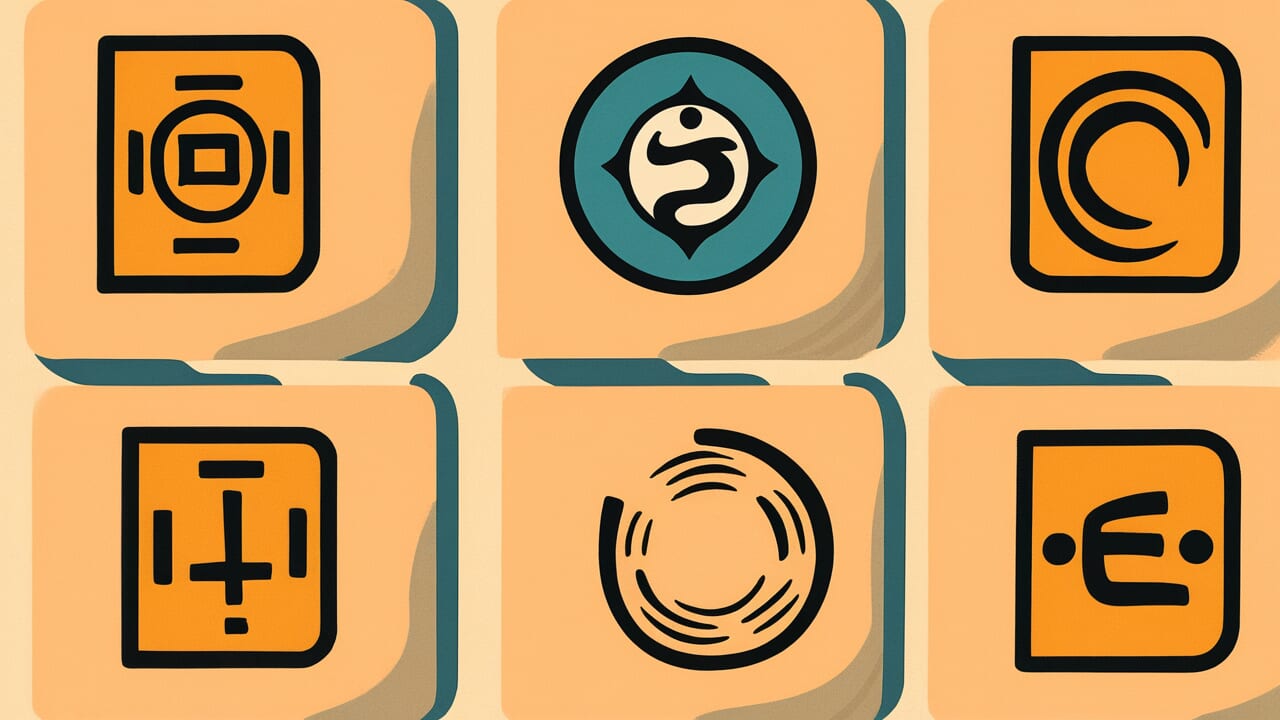- 如何读”I need to clarify that “八卦裏返り” doesn’t appear to be a standard Japanese proverb. The term seems to combine “八卦” (bagua/eight trigrams from Chinese divination) with “裏返り” (turning inside out/reversal). If this were to be translated preserving the imagery: 八卦翻转 However, I should note that this doesn’t correspond to a recognized Japanese prover”
- “I need to clarify that “八卦裏返り” doesn’t appear to be a standard Japanese proverb. The term seems to combine “八卦” (bagua/eight trigrams from Chinese divination) with “裏返り” (turning inside out/reversal). If this were to be translated preserving the imagery: 八卦翻转 However, I should note that this doesn’t correspond to a recognized Japanese prover”的含义
- 起源和词源
- 使用例子
- 普世智慧
- 当AI听到这个时
- 对今天的启示
如何读”I need to clarify that “八卦裏返り” doesn’t appear to be a standard Japanese proverb. The term seems to combine “八卦” (bagua/eight trigrams from Chinese divination) with “裏返り” (turning inside out/reversal). If this were to be translated preserving the imagery: 八卦翻转 However, I should note that this doesn’t correspond to a recognized Japanese prover”
Hakke uragaeri
“I need to clarify that “八卦裏返り” doesn’t appear to be a standard Japanese proverb. The term seems to combine “八卦” (bagua/eight trigrams from Chinese divination) with “裏返り” (turning inside out/reversal). If this were to be translated preserving the imagery: 八卦翻转 However, I should note that this doesn’t correspond to a recognized Japanese prover”的含义
“I need to clarify that “八卦裏返り” doesn’t appear to be a standard Japanese proverb. The term seems to combine “八卦” (bagua/eight trigrams from Chinese divination) with “裏返り” (turning inside out/reversal).
If this were to be translated preserving the imagery:
八卦翻转
However, I should note that this doesn’t correspond to a recognized Japanese prover”是一句谚语,描述占卜结果和事情的发展往往与你期望或希望的完全相反。
这句谚语指的是你以为占卜会显示好运但却显示厄运的经历。
或者当你为坏结果做好准备时,事情却出人意料地顺利。
它也用于占卜之外,在事件发展与你的计划相反的情况下。
每个人自然都希望得到对自己有利的结果。但现实并不那么仁慈。
事实上,你的期望越大,当事情出错时失望就越大。
这句谚语通过易于理解的占卜例子表达了人类期望与现实之间的差距。
即使在今天,当人们对意外发展感到惊讶或为不如计划的情况感到遗憾时,仍会使用这个表达。
起源和词源
“I need to clarify that “八卦裏返り” doesn’t appear to be a standard Japanese proverb. The term seems to combine “八卦” (bagua/eight trigrams from Chinese divination) with “裏返り” (turning inside out/reversal).
If this were to be translated preserving the imagery:
八卦翻转
However, I should note that this doesn’t correspond to a recognized Japanese prover”中的”八卦”指的是起源于古代中国的占卜中使用的八个基本符号。
八卦——乾、兑、离、震、巽、坎、艮、坤——分别象征天、泽、火、雷、风、水、山、地。
这些被组合起来占卜吉凶。
这种八卦占卜传播到了日本。在江户时代,在街角进行八卦占卜的算命师是常见的景象。
人们依靠占卜来处理各种事情:生意成功、婚姻前景,以及旅行是否会顺利。
“裏返り”(翻转)可能指的是卦象与预期相反的情况。
在占卜中,吉凶是由卦象的组合决定的。但与期望相反的结果并不罕见。
此外,同一个卦象根据解释可能改变含义。占卜结果并不总是符合愿望的经历在人们中间广泛共享。
这句谚语可能是作为表达生活不可预测性和事情不如计划的表达而出现的,以具体的占卜行为作为载体。
它体现了依赖占卜却知道其结果可能背叛期望的祖先的现实生活哲学。
使用例子
- 我满怀信心进行的演示失败了,而准备不充分的提案却获得了批准——真是”I need to clarify that “八卦裏返り” doesn’t appear to be a standard Japanese proverb. The term seems to combine “八卦” (bagua/eight trigrams from Chinese divination) with “裏返り” (turning inside out/reversal).
If this were to be translated preserving the imagery:
八卦翻转
However, I should note that this doesn’t correspond to a recognized Japanese prover”
- “I need to clarify that “八卦裏返り” doesn’t appear to be a standard Japanese proverb. The term seems to combine “八卦” (bagua/eight trigrams from Chinese divination) with “裏返り” (turning inside out/reversal).
If this were to be translated preserving the imagery:
八卦翻转
However, I should note that this doesn’t correspond to a recognized Japanese prover”——我收到了一所我没有期望的大学的录取通知书,但被我的第一选择拒绝了
普世智慧
谚语”I need to clarify that “八卦裏返り” doesn’t appear to be a standard Japanese proverb. The term seems to combine “八卦” (bagua/eight trigrams from Chinese divination) with “裏返り” (turning inside out/reversal).
If this were to be translated preserving the imagery:
八卦翻转
However, I should note that this doesn’t correspond to a recognized Japanese prover”反映了人类对预测的依恋和现实不确定性这一永恒主题。
我们人类有强烈的了解未来的愿望。这来自于缓解焦虑、做好准备和感到安全的迫切愿望。
这就是为什么占卜自古以来就存在。即使在今天,试图解读未来的尝试从未停止——天气预报、经济预测、数据分析。
但这句谚语教给我们的是,无论我们预测得多么精确,现实往往不会按计划进行的真理。
这不是悲观的教导。相反,正因为预测可能出错,生活才有惊喜,意外好运的可能性依然存在。
人们倾向于根据自己的愿望想象未来。期待好结果时乐观,感觉不好时悲观。
但现实独立于我们的主观期望而展开。客观现实与主观期望之间的这种差距就是”翻转”这个词所表达的。
我们的祖先通过占卜行为了解了人类预测能力的局限性。
同时,他们有智慧在预测失败时不恐惧,而是将其接受为生活的一部分。
当AI听到这个时
当你从数学角度看八卦圆形排列的翻转操作时,会出现一个令人惊讶的结构。
八卦通过阴阳的组合创造出八种模式。当排列成圆形时,它们实际上具有即使翻转也保持相同信息结构的性质。
在拓扑学中,当物体连续变换时不变的性质被称为”不变量”。
例如,甜甜圈的孔数无论你怎么拉伸都保持为一。
对于八卦,翻转是”反转方向的变换”,但阴阳的二进制信息对反转具有对称性。
换句话说,如果你将阴重新解释为阳,将阳重新解释为阴,你总是回到原来的八种模式。
这不是巧合,而是由二的三次方的数学结构创造的必然性。
更有趣的是,八卦的排列有多个”对称轴”。
即使你沿着圆上的任何轴折叠,你总会找到相应的模式。
这正是群论中”二面体群”的性质,充分利用了八个元素的旋转和反射对称性。
古代中国思想家在没有计算机或现代数学的时代直觉地掌握了这种对称性。
即使翻转也能回归的现象表明,信息的本质不在于物理排列,而在于关系。
对今天的启示
“I need to clarify that “八卦裏返り” doesn’t appear to be a standard Japanese proverb. The term seems to combine “八卦” (bagua/eight trigrams from Chinese divination) with “裏返り” (turning inside out/reversal).
If this were to be translated preserving the imagery:
八卦翻转
However, I should note that this doesn’t correspond to a recognized Japanese prover”教导我们现代人摆脱对预测过度依赖的重要性。
现代社会信息泛滥。我们试图用数据预测一切。
股市趋势、考试通过率,甚至恋爱兼容性测试——通过数字了解未来的尝试从未停止。
但无论预测多么精确,它最终只是一种可能性。
重要的是在预测可能出错的前提下行动。
当事情不如预期时,不要将其视为失败。要有灵活性,将其视为新可能性的开启。
事情不按计划进行不是你能力不足。这是世界的本质特性。
不要过分受坏预测束缚也很重要。
“反正不会成功”的信念剥夺了你尝试的勇气。正如占卜符号会翻转,悲观的预测也可能被推翻。
将预测作为参考,但不要让它们控制你的生活。
准备好你的心来处理无论事情如何发展。这是在不确定世界中生存的智慧。



评论